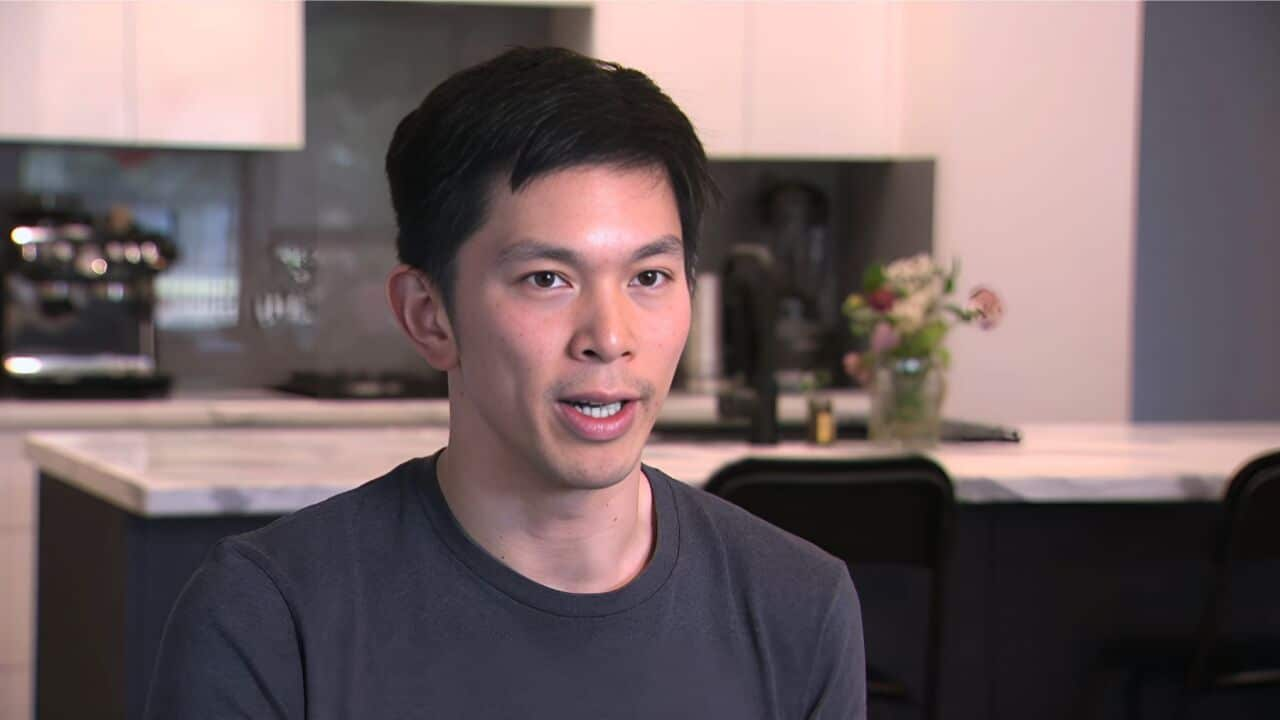The documentary 'Psychedelics: Stepping into the Unknown' can be seen on SBS on Thursday Feb 29 and SBS On Demand from 8.40 pm Eastern time
TRANSCRIPT
Warren used to see the world as a frightening place.
“I felt world was growing increasingly grey and stifling and smothering, and terrifying, like the world was just sort of shrinking.”
Considered bad luck at birth by his superstitious father, Warren was raised by his single mother - a refugee from Vietnam - in Melbourne, in a childhood he remembers as severe.
It was a past he came slowly came to realise affected him as an adult.
“Basically, all the world, and the stimuli and people, everything would bring out in me reactions and responses and thoughts and feelings that I didn’t feel were well adapted.”
Those feelings led him to take part in a randomised clinical trial by Monash University, testing the use of the hallucinogen psylocibin in the treatment of severe and generalised anxiety disorder.
Audio from documentary soundtrack: "Snakes started coming out of the darkness with their tongues sticking out, I could feel them hissing as they went by."
That trial is now the subject of a documentary called 'Psychedelics: Stepping into the Unknown.'
Participants underwent two dosing sessions supported by six months of psychotherapy.
“So I think the therapy is very useful for unpacking things for me from a mental and intellectual understanding or point of view./ Then receiving the psychedelic was an ability to delve into that, but from a more physical and visceral and bodily approach as opposed to just in my own head.”
“It's an approach that uses a medicine to sort of deepen and amplify the therapy.”
Marg Ryan is a clinical psychotherapist who supported Warren during the trial.
“What I notice is that people are able to see into their lives and see truths about themselves in a way that they in daily life can't access so easily. So there is something that allows a deepening and a relaxing-into what is really true for a person to emerge.”
The results of the study are yet to be published, and psylocibin is not currently approved for the treatment of anxiety.
But last July, the Therapeutic Goods Administration did approve the use of psylocibin for treatment-resistant depression, and M-D-M-A, also known as ecstasy, for Post-traumatic stress disorder.
The treatments must be administered in a clinical setting, under supervision.
According to the Therapeutic Goods Administration, only eight psychiatrists are currently authorised to prescribe the medicines.
In the first six months after approval, just one prescription was made, which was for MDMA.
Professor Richard Harvey chairs the steering group for the Royal Australian and New Zealand College of Psychiatrists that developed professional guidelines for the use of psychedelic-assisted therapy.
He says the treatments are not for suitable for everybody and it's critical patients follow the advice of their treating psychiatrist.
“We really don't have good solid evidence about how these treatments work or about what the side effects or adverse consequences of the treatments might be./ My understanding from the people that are doing this is that it's really not understood whether the benefit in the psychedelic assisted therapy that they've seen in the small clinical trials comes from the substance they're given or comes from the therapy.”
For Warren, the dosing experience was mixed.
“The first half was, I would say, terrifying. I remember thinking perhaps I was going crazy and I was in a different dimension and I couldn't get out./ And then the second half was thankfully a big turning point that the texture and flavor of the second half of the experience was quite the opposite, and it was very warm and welcoming and loving, and it was where a lot of the earlier problems that manifested were actually sort of just addressed or resolved.”
But he says the therapy in its entirety has been transformative.
“The world just felt like, oh, colour was getting added back into it. It felt more like a welcoming place that didn't necessarily need to be so frightening.”













